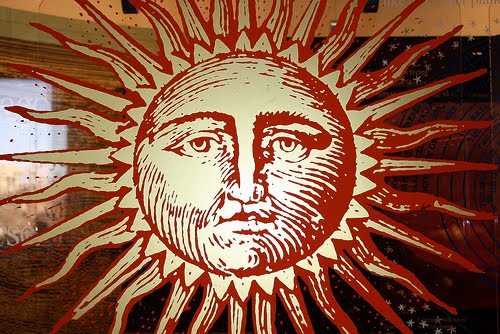
Tio Tabasco was a great doctor for the people of the middle Amazon. His family had practiced the ancient art of plant healing for almost 2,000 years.
"La mitad de las especies del planeta de plantas, animales y organismos de espíritu será destruida o amenazada durante los próximos cinco años, a menos que el aliento del Abuelo vuelva," he said.
This is the translation of the village shaman of Progresso, the capital community on the Rio Ataya, the small river which flowed deep in the jungle:
Half of the planet's species of plants, animals and spirit organisms will be destroyed or threatened over the next five years, unless Grandfather's breath returns. This burden of wringing out the toxicity of evil spirits rests with you Cuchibambas (little warriors), and now you must act. The trajedy of deforestation is that the planet loses 137 plant, animal and insect species every single day, the equivalent of 50,000 species a year. As the rainforest species disappear, so do many possible cures for life-threatening diseases. My ancestors have been healers for 75 generations (to the time of Roman Emperor Antonius Pius).
Tio explained that in the time of his great great grandfather, there were an estimated ten million Indians living in the Amazonian rainforest. Today there are less than 50,000. And this day marks Tio's 77th birthday. His final words were, "Cada vez que un chamán muere, es como si una biblioteca ha incendiado.
Si sus artes no son transmitidas a la siguiente generación, la tribu y el mundo pierden miles de años del conocimiento irremplazable sobre plantas sagradas."
Each time a rainforest medicine man dies, it is as if a library has burned down.
When a medicine man dies without passing his arts on to the next generation, the tribe and the world loses thousands of years of irreplaceable knowledge about medicinal plants.
Orlando was the Más Cicatrices (leader, literally, most scarred) of the Cuchibambas. He bowed his head and ordered the other men to do the same. He ached with fear of his next act, but Tio Tabasco had sealed the resolution by drinking the venom of the Surucucu, the most poisonous snake of the region.
With one swift movement, Orlando swung his machette as he rose from the kneeled position, and the sharp edge of the tempered weapon sliced through Tio's neck as if it was first growth bambu. With his eyes still wide open, Tio's head dropped like a bowling ball, while his body followed the trajectory of the machette. For two minutes, a pulsating red fountain shot like a geiser out the neck of the slain doctor.
Orlando choked back his anguish while he methodically placed Tio Tabasco's bloody head in to the tejido basket, to display to the village residents. At the ceremony, the English translation of the decree was as follows:
My people. Tio Tabasco has left this world, only symbolically. His body is no longer with us but his medicine survives. His vision was clear and direct from the Great Grandfather Spirit. This was the message from the Father of all brothers.
"The blood of your ancestors runs to the time when the mighty Jatoba tree learned the language of the wind. When the first blessed trance dancer of your family initiated the art of healing hands, the Jatoba line reached maturity. Jatoba has now been displaced by pulpwood plantations for cursed papyrus soup. To reverse the fall of mankind, you must sacrifice your family heritage. The knowledge of your ancestors will now speak a subterranean language. Your own people will enter a dark period but the insect and soil spirits will rejoice.
The house of your eyes and mouth shall be separated from your body and will be planted in the forest. I will gather a strong wind from within your nostrils and my breath will restore the ancient Jatoba. In the time of 75 generations, the forest will rejuvenate and eventually your people will emerge as elders for the world.
That night, the village people drank the elixir of Shambasa, made from the mother vine of Turimlaka. A celebration held once in 25 generations, marked by the dance of the winter moon was dutifully performed by every soul of the village. But the healing hands and sacred knowledge of Tio Tabasco would no longer nurture his people and a deep sadness rose in La Selva.









